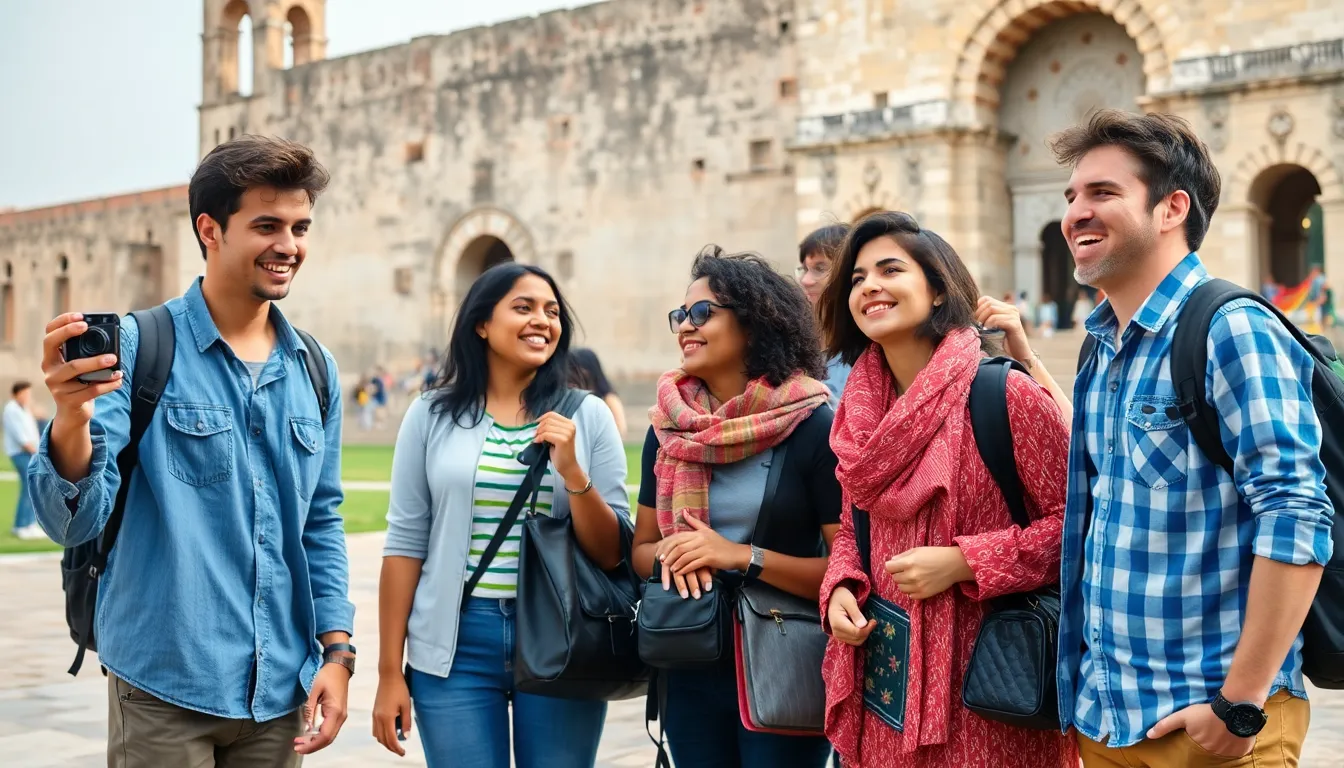Educational group travel offers a unique opportunity for students to learn beyond the classroom walls. These immersive experiences foster personal growth and cultural awareness, making learning more dynamic and engaging. Traveling together allows students to bond, share experiences, and deepen their understanding of diverse perspectives.
From historical landmarks to scientific explorations, educational trips can spark curiosity and inspire a love for learning. With the right planning and purpose, group travel transforms traditional education into an adventure that cultivates essential life skills. It’s not just about visiting new places; it’s about creating memories that last a lifetime.
Table of Contents
ToggleOverview of Educational Group Travel
Educational group travel offers students enriched learning experiences that significantly enhance their understanding of various subjects. Through firsthand exposure to different cultures, communities, and environments, students gain insights that classroom lessons alone cannot provide.
Benefits of educational group travel include:
- Cultural Immersion: Participants engage directly with local traditions, customs, and languages, fostering deeper cultural appreciation.
- Personal Growth: Traveling in a group encourages independence, self-confidence, and adaptability among students.
- Teamwork and Collaboration: Group settings promote communication skills as students work together on projects and navigate new environments.
- Enhanced Curriculum: Educational trips often align with classroom topics, allowing students to connect theoretical knowledge with real-world applications.
- Increased Curiosity: Exposure to new experiences stimulates interest in global issues, history, and science, encouraging lifelong learning.
Educational group travel also cultivates lasting friendships through shared adventures. These experiences contribute to creating holistic educational environments, where learning extends beyond books to real-life applications, forming a pivotal part of their academic journey.
Benefits of Educational Group Travel

Educational group travel offers numerous advantages, enriching students’ learning paths and personal development through shared experiences. Below are key benefits that highlight its significance.
Enhanced Learning Experiences
Educational group travel provides immersive environments where students engage with new cultures, languages, and histories firsthand. Real-world exposure reinforces classroom lessons, making complex subjects accessible and relatable. Students observe historical landmarks, participate in local traditions, and interact with native speakers, which deepens their understanding and retention of knowledge. Group travel also encourages critical thinking as students analyze and reflect on their experiences, enhancing cognitive skills.
Personal Growth Opportunities
Travel cultivates independence and self-confidence among students. Being away from familiar surroundings challenges them to navigate new environments, make decisions, and solve problems collaboratively. Group settings foster teamwork skills, as students learn to communicate effectively and support each other during various activities. Additionally, shared experiences can strengthen friendships and improve social skills, promoting empathy and cultural sensitivity. This personal growth complements academic learning, preparing students for diverse future challenges.
Planning an Educational Group Trip
Planning an educational group trip involves careful consideration and strategic decisions that enhance the overall experience. By establishing clear objectives and selecting an appropriate destination, organizers can create impactful learning opportunities.
Establishing Objectives
Establishing clear objectives for an educational group trip guides the planning process. Objectives should align with the curriculum and address specific learning outcomes.
- Identify academic goals, such as understanding historical events or exploring scientific concepts.
- Set personal development goals, like enhancing communication skills or fostering teamwork.
- Define cultural exposure objectives, enabling students to engage with local customs and traditions meaningfully.
Clearly defined objectives streamline the planning process and ensure the trip meets educational standards, maximizing its benefits for students.
Choosing the Right Destination
Choosing the right destination plays a vital role in achieving the established objectives. An ideal destination should offer rich educational experiences relevant to the group’s goals.
- Research historical sites that provide insights into specific periods or events.
- Consider locations known for unique natural landscapes, promoting environmental education.
- Evaluate cities or regions with vibrant cultural scenes, facilitating direct interactions with diverse communities.
Selecting a destination based on how well it supports learning and exploration enhances students’ immersive experiences, making the trip both educational and memorable.
Safety and Support in Educational Travel
Safety plays a crucial role in educational group travel, ensuring students can explore and learn without unnecessary risks. Effective support mechanisms are essential to address any challenges that may arise during the journey.
Risk Management Strategies
Risk management strategies involve comprehensive planning and preparedness. Schools and travel organizers should assess potential risks by evaluating destinations, weather conditions, and local health advisories. Strategies include:
- Pre-trip training: Providing students with travel safety training covers essential topics such as navigating unfamiliar places, emergency response, and cultural sensitivity.
- Health and safety protocols: Implementing guidelines for health and safety helps mitigate risks, including having first aid kits and emergency contacts available throughout the trip.
- Insurance coverage: Securing travel insurance protects against unforeseen circumstances, such as trip cancellations or medical emergencies, ensuring financial safety.
- Group supervision: Maintaining appropriate adult-to-student ratios fosters a safer environment, allowing students to feel secure and supported while exploring new locations.
Support from Educational Institutions
Support from educational institutions enhances the travel experience by ensuring that students receive adequate guidance and resources. Institutions should:
- Offer pre-departure orientations: Conducting information sessions prepares students and parents for the upcoming trip, addressing concerns and highlighting expectations.
- Provide access to resources: Sharing educational materials relevant to the trip enriches students’ understanding of the destination, connecting classroom lessons with real-life experiences.
- Facilitate communication: Establishing open lines of communication between teachers, students, and parents offers reassurance, especially during trips. Utilizing mobile apps or messaging platforms keeps everyone informed about changes or updates.
- Conduct post-trip reflections: Encouraging students to reflect on their experiences allows for deeper learning, reinforcing connections between travel experiences and academic objectives.
By implementing robust risk management strategies and strong institutional support, educational group travel becomes a secure and enriching experience for students, fostering both personal growth and academic success.
Educational group travel presents an invaluable opportunity for students to learn outside the confines of traditional classrooms. By immersing themselves in new cultures and environments, they not only enhance their academic knowledge but also develop crucial life skills. These experiences foster independence and teamwork while cultivating a deeper understanding of global issues.
The memories created during these trips often last a lifetime, strengthening friendships and promoting empathy. With careful planning and support from educational institutions, students can embark on journeys that are both safe and enriching. Embracing educational travel can transform learning into an adventure that shapes well-rounded individuals ready to face the world.


